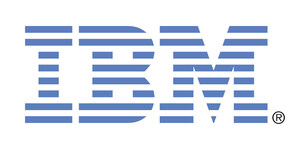
AUSTIN, Texas, Nov. 16, 2015 /PRNewswire/ -- IBM (NYSE: IBM) and several fellow OpenPOWER Foundation members today revealed new technologies, collaborations and developer resources to enable clients to analyze data more deeply and with incredible speed. The new offerings center on the tight integration of IBM's open and licensable POWER processors with accelerators, dedicated high performance processors that can be optimized for computationally intensive software code.
The accelerated POWER-based offerings come at a time when clients are seeking the ideal server platform for Internet of Things, machine learning and other cognitive computing applications. Through an open, collaborative model, IBM and more than 90 members participating in the OpenPOWER Foundation's Accelerators Working Group are developing and delivering a wide range of accelerator-based solutions.
"There is a need for systems that provide greater speed to insight -- for data and analytics workloads to help businesses and organization make sense of the data, to outthink competitors as we usher in a new era of Cognitive Computing," said Brad McCredie, IBM Fellow and OpenPOWER Foundation President. "IBM and our fellow OpenPOWER members are on the forefront driving the changes necessary for innovation at all levels of the technology stack, including the development of the industry's first open, high-speed interconnects between processors and accelerators."
OpenPOWER Member Commitments to Accelerated Infrastructures
New products, collaborations and further investments in accelerator-based solutions on top of the POWER processor architecture include:
- Accelerating Watson: First made famous for beating humans on the Jeopardy! game show, IBM Watson's ability to "think" is transforming industries worldwide by enabling a new relationship between people and computers. IBM revealed today that the incorporation of NVIDIA® Tesla® K80 GPUs, the flagship offering of the NVIDIA Tesla Accelerated Computing Platform – coupled with Watson's POWER-based architecture – accelerates Watson's Retrieve and Rank API capabilities to 1.7x of its normal speed. This speed-up can further improve the cost-performance of Watson's cloud-based services. For example, a call center agent responding to an individual's health and insurance query can leverage Watson's natural language processing technology to obtain an answer in real-time even faster than before, potentially increasing customer satisfaction and lowering service costs. In addition to bolstering response time, the GPU acceleration also increases Watson's processing power to 10x its prior performance.
- Strategic Collaboration with Xilinx: Newest OpenPOWER Platinum member Xilinx and IBM today announced a multi-year strategic collaboration to jointly develop data center and network function virtualization (NFV) solutions that bring together the systems, software, and management components around Xilinx FPGA accelerators. The solutions focus on emerging workloads including high performance computing, cognitive computing, machine learning, genomics and big data analytics.
- Accelerated Networking: Mellanox announced the world's first smart network switch, the Switch-IB 2, capable of delivering clients an estimated 10x system performance improvement. NEC announced availability of its ExpEther Technology that is also suited for POWER architecture-based systems, along with plans to leverage IBM's innovative Coherent Accelerator Processor Interface (CAPI) technology to deliver additional accelerated computing value to its clients in 2016.
- New OpenPOWER-Based Systems: Two OpenPOWER members, E4 Computer Engineering and Penguin Computing, revealed new systems based on the OpenPOWER design concept incorporating IBM POWER8 and NVIDIA Tesla GPU accelerators.
- IBM Key Applications Ported and in Beta: IBM has ported a series of key IBM Internet of Things, Spark, Big Data and Cognitive Era applications to take advantage of the POWER architecture with accelerators.
Expansion of Developer Resources
Responding to growing demand from developers for test servers to build, port and optimize applications that can take advantage of accelerators on POWER-based systems, IBM and fellow OpenPOWER members have built a global network of physical centers and cloud-based services for no-charge access to accelerated POWER-based infrastructure. New and expanded resources include:
- Expanded GPU Services on SuperVessel: NVIDIA and IBM worked together to accelerate SuperVessel, a global cloud-based OpenPOWER ecosystem resource launched in June. SuperVessel now provides GPU-accelerated computing as-a-service capabilities, giving users access to high-performance NVIDIA Tesla GPUs to enable Caffe, Torch and Theano deep-learning frameworks to instantaneously launch from the SuperVessel cloud.
- Expanded FPGA Services on SuperVessel: Xilinx and IBM have developed a new FPGA accelerator service on SuperVessel that makes coherent reconfigurable accelerators available to developers via the cloud. By enabling high-level language programming like C, C++ and OpenCL, Xilinx and IBM are dramatically expanding how users can leverage FPGAs in the cloud for innovation on applications like machine learning, big data analytics and HPC.
- New Cluster at University of Texas at Austin: IBM and new OpenPOWER Foundation member, the Texas Advanced Computing Center (TACC) at The University of Texas at Austin, announced a POWER8-based accelerated computing cluster to be made available to academic researchers and developers. The new cluster is currently running successfully in an early user mode, and will begin accepting requests for access this week.
- Oregon State University Expands OSUOSL: Oregon State University's Open Source Lab (OSUOSL) has expanded the footprint of POWER8-based systems in their existing OpenStack cluster with additional compute and memory capacity. The expansion can significantly increase the number of distinct users OSUOSL can support for research and development on OpenPOWER/OpenStack infrastructures.
Transforming Industries with Open Acceleration
Several IBM clients understand firsthand how the coupling of accelerator technologies with POWER processors can and are delivering breakthrough performance to enable industries to transform.
- According to Bryan O'Neil, Director of Data Architecture, Allegiant Travel, "A company's data represents an immense opportunity -- and the speed at which you can glean insight from it is what will separate the winners from the losers in today's highly competitive industries. IBM and OpenPOWER members are delivering the kinds of acceleration technology our industry needs to enable real time decision making. Allegiant Travel is impressed with what we are seeing and eager to leverage accelerated solutions in our data center as we continue down the path to becoming a cognitive business."
- Last month a team of noted researchers led by Erez Lieberman Aiden, a geneticist and computer scientist with appointments at Baylor College, Baylor College of Medicine and Rice University, was nationally recognized for breakthrough genomics research – a new procedure designed to modify how a human genome is arranged in three dimensions in the nucleus of a cell, with extraordinary precision. Today, the team revealed that the feat was achieved using Power Systems accelerated with NVIDIA Tesla GPUs and Mellanox network infrastructure to build a 3-D map of the human genome and model the reaction of the genome to this surgical procedure, without disturbing the surrounding DNA.
- Coming on the heels of announcing its new supercomputer Delta based on the OpenPOWER server platform, Louisiana State University has released a white paper today documenting how an IBM POWER8-based server using acceleration technology rendered 7.5x to 9x performance increases over an Intel Xeon based LSU HPC server without acceleration technology (1).
For further details about the OpenPOWER Foundation visit www.openpowerfoundation.org.
| (1) |
Source: "IBM POWER8® HPC System Accelerates Genomics Analysis with SMT8 Multithreading" - November 16, 2015. Results are based on testing by Louisiana State University- Center for Computational Technologies (CCT) of a 40 Nodes IBM Power System S824L cluster, SMT8 enabled, IBM Spectrum Scale Elastic Storage, 512TB compared to the SuperMikeII 120 node with two 8-core Intel Sandy Bridge Xeon processors at 2.6GHz core speed with hyper-threading disabled. Each IBM POWER8 node had 256GB memory (RAM) as compared to 32GB RAM in the LSU SuperMikeII system. The IBM node provides 16 independent, high bandwidth memory controllers, providing 16GB per memory controller. Results will vary depending on individual workloads, configurations and conditions. The accelerator-based technology, the CAPI/Flash Controller, is an option on all IBM POWER8-based servers for an additional charge. |
Media Contact:
Kristin Bryson
IBM Media Relations
203-241-9190
[email protected]
Logo - http://photos.prnewswire.com/prnh/20090416/IBMLOGO
SOURCE IBM





Share this article